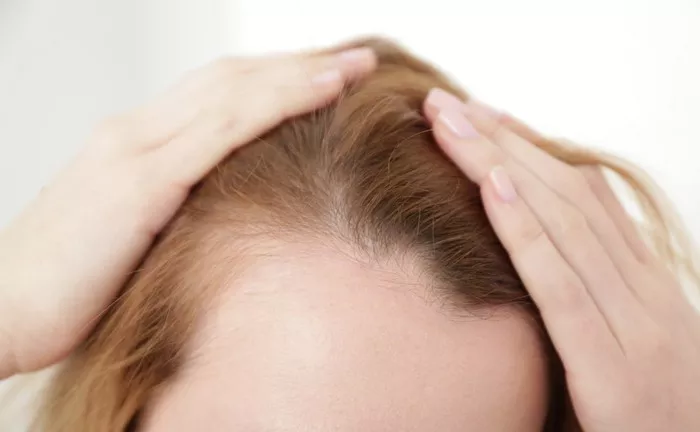Hair loss can be a distressing experience for both men and women. While there are several factors that contribute to hair loss, including genetics, hormonal changes, and lifestyle, the role of vitamins in promoting hair growth and preventing hair loss should not be overlooked. Certain vitamins play a vital role in maintaining healthy hair follicles, nourishing the scalp, and promoting hair growth. In this comprehensive guide, we will explore the benefits of various vitamins for hair loss and provide insights into how they can be incorporated into your diet or supplement routine. Let’s delve into the world of vitamins and discover which one can help combat hair loss effectively.
Understanding Hair Loss and Vitamin Deficiencies
Before we delve into the specific vitamins for hair loss, it’s important to understand the basics of hair growth and the role of vitamins in maintaining healthy hair follicles. Hair growth occurs in cycles, with each individual hair strand going through a growth phase (anagen), a transitional phase (catagen), and a resting phase (telogen). During the anagen phase, the hair follicles actively produce new hair strands. The health of the hair follicles is crucial for maintaining a healthy hair growth cycle.
Vitamin deficiencies can contribute to hair loss by affecting the health and functioning of the hair follicles. Insufficient intake of certain vitamins can weaken the hair follicles, disrupt the hair growth cycle, and lead to hair loss or thinning. Incorporating these vitamins into your diet or supplement routine can help promote hair growth and prevent further hair loss.
Vitamins for Hair Loss
While a balanced diet rich in essential nutrients is crucial for overall hair health, certain vitamins are particularly beneficial for combating hair loss. Let’s explore these vitamins and their benefits:
1. Vitamin A
Vitamin A plays a crucial role in promoting hair growth by aiding in the production of sebum, a natural oil that moisturizes the scalp and keeps the hair follicles healthy. It also helps in the formation and maintenance of healthy cells throughout the body, including the hair follicles. However, it’s important to note that excessive intake of vitamin A can have adverse effects, so it’s essential to consume it within the recommended daily limits.
2. B-Vitamins
The B-vitamin complex, which includes Biotin (B7), Niacin (B3), Pantothenic acid (B5), and Cobalamin (B12), plays a crucial role in maintaining healthy hair and preventing hair loss. Biotin, in particular, is often associated with hair health, as it supports the production of keratin, a protein that makes up the structure of hair strands. Niacin helps improve blood circulation to the scalp, ensuring adequate nutrient supply to the hair follicles. Pantothenic acid aids in hair follicle health and promotes hair growth. Cobalamin helps in the formation of red blood cells, which carry oxygen and nutrients to the scalp and hair follicles.
3. Vitamin C
Vitamin C is an antioxidant that helps protect the hair follicles from damage caused by free radicals. It also aids in the production of collagen, a protein that strengthens the hair shaft and promotes hair growth. Vitamin C also helps with iron absorption, which is important for healthy hair growth.
4. Vitamin D
Vitamin D plays a crucial role in hair follicle cycling and may help stimulate hair growth. It is believed to help create new hair follicles, which can contribute to thicker and denser hair. Vitamin D also helps maintain the health of the scalp, which is vital for healthy hair growth.
5. Vitamin E
Vitamin E is an antioxidant that helps reduce oxidative stress and protects the hair follicles from damage. It promotes blood circulation to the scalp, which is essential for delivering nutrients to the hair follicles and supporting hair growth. Vitamin E also helps maintain the overall health of the scalp and reduces inflammation, which can contribute to hair loss.
6. Vitamin K
Vitamin K plays a role in maintaining the health of the blood vessels, including those that supply nutrients to the hair follicles. It aids in the absorption of calcium, which is important for hair growth and strength.
7. Vitamin F (Essential Fatty Acids)
Essential fatty acids, including Omega-3 and Omega-6 fatty acids, are important for hair health. They help nourish the scalp, reduce inflammation, and promote healthy hair growth. These fatty acids can be obtained from sources such as fatty fish, flaxseed, chia seeds, and walnuts.
Incorporating Vitamins into Your Routine
While it’s best to obtain vitamins through a balanced diet, in some cases, supplements may be necessary to meet your body’s requirements. Here are some ways to incorporate hair-healthy vitamins into your routine:
1. Dietary Sources
Aim to incorporate foods rich in the aforementioned vitamins into your diet. Include a variety of fruits, vegetables, lean proteins, whole grains, and healthy fats. Some examples of vitamin-rich foods include carrots, sweet potatoes, spinach (vitamin A), eggs, nuts, and seeds (biotin), citrus fruits, berries, and bell peppers (vitamin C), fatty fish, mushrooms, and fortified dairy products (vitamin D), almonds, sunflower seeds, and spinach (vitamin E).
2. Supplements
If you struggle to obtain sufficient amounts of these vitamins through your diet alone, supplements can be a convenient option. Consult with a healthcare professional to determine the appropriate dosage and duration for the specific vitamins you need. They can help evaluate your individual needs and guide you towards high-quality supplements.
3. Topical Applications
Some vitamins can be applied topically in the form of hair care products. Look for shampoos, conditioners, or serums that contain vitamins and other hair-nourishing ingredients. These products can provide direct nourishment to the hair and scalp, promoting healthier hair growth.
Conclusion
Hair loss can be a distressing experience, but incorporating hair-healthy vitamins into your routine can support healthy hair growth and prevent further hair loss. Vitamins such as A, B-complex, C, D, E, K, and essential fatty acids play important roles in maintaining healthy hair follicles, nourishing the scalp.


